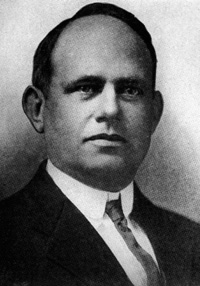
Lawrence O. Murray
Encyclopedia

United States
The United States of America is a federal constitutional republic comprising fifty states and a federal district...
Comptroller of the Currency from 1908 to 1913.
Attorney Lawrence O. Murray had extensive government service prior to his appointment as Comptroller by President Theodore Roosevelt
Theodore Roosevelt
Theodore "Teddy" Roosevelt was the 26th President of the United States . He is noted for his exuberant personality, range of interests and achievements, and his leadership of the Progressive Movement, as well as his "cowboy" persona and robust masculinity...
. During his tenure, the size of the national banking system prompted Congress to authorize appointment of a second deputy comptroller.
In the interim before Murray's successor took office, the Federal Reserve Act
Federal Reserve Act
The Federal Reserve Act is an Act of Congress that created and set up the Federal Reserve System, the central banking system of the United States of America, and granted it the legal authority to issue Federal Reserve Notes and Federal Reserve Bank Notes as legal tender...
was passed. The act created twelve Federal Reserve Districts, with the Comptroller designating a district chief national bank examiner for each district under whom a corps of examiners and assistants worked. Examiners were to be compensated by salary and expenses rather than fees levied on the banks they examined.

